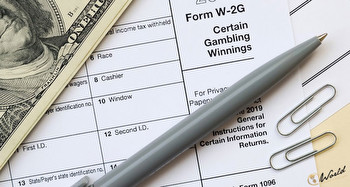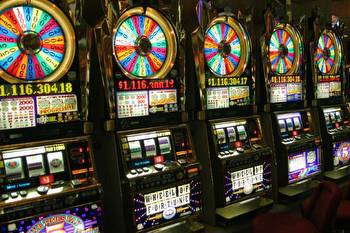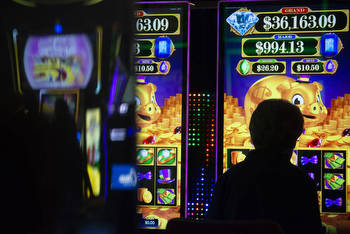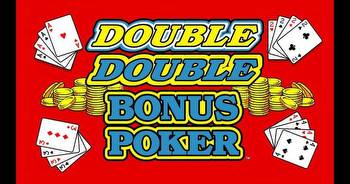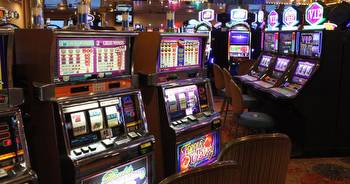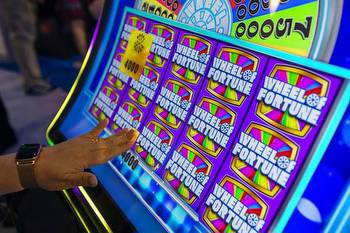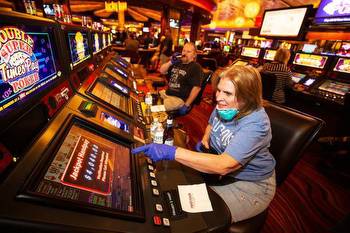Las Vegas Strip gamblers likely to get a surprise IRS jackpot

When people play a slot machine on the Las Vegas Strip, in a regional casino, or in most cruise-ship casinos, they want to win big — but maybe not too big.
Sure, everyone wants the huge jackpots, but when you're talking smaller numbers, many gamblers would rather hit for $1,199 or less.
That's because if you win $1,200 or more on a single spin, your machine locks. You have earned what gamblers call a "hand pay." It's a good thing, of course, but it can be a very slow process depending upon how crowded the casino is.
A hand pay requires an attendant to come over, take your license or other identification, and bring you a tax form. On that tax form, a W2-G, a payout of $1,200 or more must be reported to the IRS.
If you're a frequent gambler, this creates a nuisance as you can end up with multiple forms over the course of a year. Winnings, of course, can be offset by losses, but doing that requires ordering a win-loss statement from the various casinos you play in.
It's added work for the casino and often a long wait for the gambler who is not playing while they wait either for the form or, sometimes, for a casino worker to notice the situation and come over. Many gamblers have hoped for changes to the slot-win tax-form limit because the $1,200 number has been in place since 1977.
Now, two members of the House of Representatives, Dina Titus (D-Nevada) and Guy Reschenthaler (R-Pennsylvania) have received some positive news about their efforts to change the limit.
IRS considers a change for big slot, video-poker wins
Titus and Reschenthaler last May introduced a bill that would raise the slot-machine-win limit that requires a W2-G to $5,800. That proposed law gave the IRS a chance to take action on its own before being acted.
Now, it appears the IRS may be doing that without being forced to by law. It has responded positively to the two lawmakers, according to a report from the Nevada Independent. In a report from the IRS Advisory Council, the federal agency suggested raising the reporting threshold for slot and video-poker-machine wins to $5,800.
“Updating an outdated gaming regulation is not just a priority for my constituents in Las Vegas, it is a common-sense fix that affects the growth of legal gaming in local and Tribal communities across the country,” Titus told Casinos.com.
Casino operators, including Las Vegas Strip leaders Caesars Entertainment and MGM Resorts International, have generally supported these efforts. Changing the rule would issue these forms much less frequently and likely would increase gambling in their casinos, since winners would not need to stop in order to wait for the often lengthy hand-pay process.
The current rule is also enforced on most cruise lines that sail out of the U.S., including Royal Caribbean and Carnival.
The IRS still needs to take action
The IRS Advisory Council has supported the increase and says that any new limit should also include provisions to account for inflation. That would essentially solve the issue, as the number would rise each year and not get stuck in place for 46 years.
Titus explained her position in a letter to the IRS.
“Shutting down slot machines for low-dollar amounts floods the IRS with outdated forms that help no one. My bill, the SLOT Act, and the IRS Advisory Council’s recent recommendation to raise the threshold would reduce the paperwork burden on businesses and players while ensuring our tax code reflects economic reality,” she wrote.
The gaming industry also supports the change.
“The antiquated slot tax threshold creates unnecessary burdens for consumers, casino operators and the IRS,” American Gaming Association Chief Executive Bill Miller said.
Nearly every major casino operator in the U.S. has joined the gambling trade group. Caesars Entertainment, however, is not a member.
The trade association outlines its mission on its website. It seeks "to remove barriers inhibiting gaming's growth and help unlock new opportunities. We will strengthen our industry's positioning as a major economic contributor, community partner, and strong supporter of consumer protections."








